The criminal underworld is an insular community shrouded in secrecy. That’s helped lend an air of
mystique to cyber crime. (See also: Bruce Willis in “Die Hard 4: Live Free or
Die Hard.”). But it turns out that, like so much else, real life cyber crime is… well… pretty dull.
How dull? Comic artist Marc Alan Fishman of Unshaven Comics recently teamed up with security firm Team Cymru on a series of strips that illustrate the kinds of mundane transactions that keep the cyber criminal underground humming: spammers purchasing e-mail addresses, identity thieves buying “dumps” of stolen credit card numbers, and thieves trying to figure out how to moved fenced items across international borders.
 Spammers always need fresh lists of e-mail addresses, says Steve Santorelli director of global outreach at Team Cymru. Supplying them is a lucrative underground business in its own right. The easy availability of such lists and the commodity prices they fetch is a sign of how well developed the underground economy really is. In this strip, a spammer negotiates for a list of one million e-mail addresses. The final price: 100 addresses for a little more than a penny.
Spammers always need fresh lists of e-mail addresses, says Steve Santorelli director of global outreach at Team Cymru. Supplying them is a lucrative underground business in its own right. The easy availability of such lists and the commodity prices they fetch is a sign of how well developed the underground economy really is. In this strip, a spammer negotiates for a list of one million e-mail addresses. The final price: 100 addresses for a little more than a penny.
Fishman supplied the artwork here, but the conversations depicted are actual chats observed in underground forums, with minor modifications made to preserve the integrity of Cymru’s surveillance operation, said Santorelli. These strips can also be viewed on Cymru’s regular security Webcasts
. 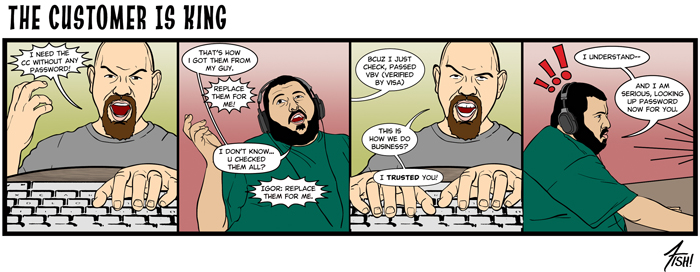 As in traditional criminal networks, reputation is
As in traditional criminal networks, reputation is
everything, and cybercriminals will go to great lengths to maintain their
reputation and provide quality goods and services for valued customers. In the above strip, “Chuck” is displeased that a batch (or “dump”) of stolen credit card
account numbers he has purchased are protected by a separate PIN and wants his
money refunded.
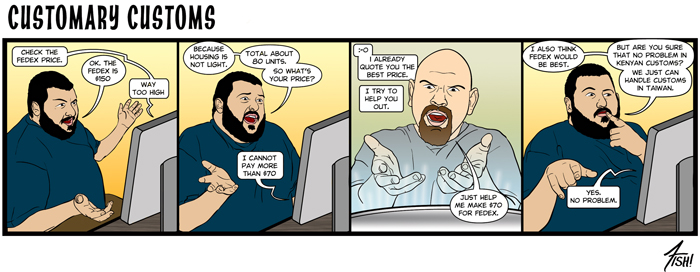 Criminals dealing in fenced goods or stolen cash
Criminals dealing in fenced goods or stolen cash
need to find a way to move it to a location where they can access it. Cymru
says that shipping goods between countries is a common source of tension
between cyber criminals – and a point of intense negotiation. In this strip,
two cyber criminals negotiate to cover the cost of moving how to move goods
between Taiwan and Kenya.
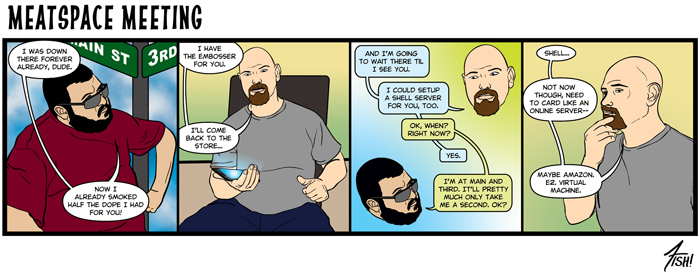
Though most interactions in the cyber criminal underground
are virtual, criminals do sometimes meet in the flesh (also known as
“meatspace”) to consummate deals, or just to socialize, as depicted in the above strip.
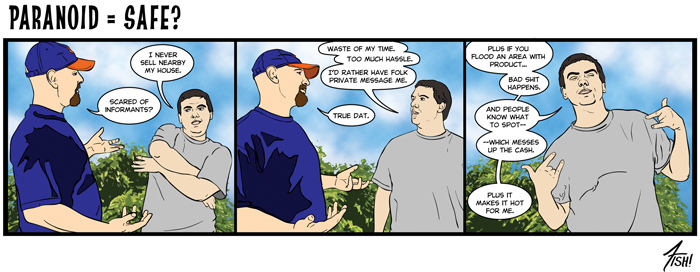 Too much knowledge of the individuals behind their online
Too much knowledge of the individuals behind their online
criminal contacts makes both parties vulnerable, leading to apprehension and
mutual distrust. The strip above illustrates how cyber criminals can get just as tweaky and freaked out as other kinds of cons.
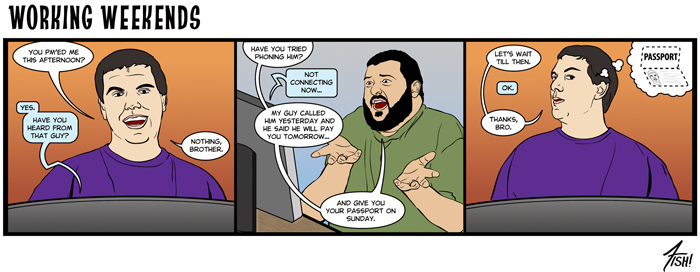 The creation and sale of stolen identity documents is a
The creation and sale of stolen identity documents is a
lucrative and highly evolved industry in the cyber criminal underground. As this
strip illustrates, valued customers can even get weekend delivery of fake
passports… for a price.









